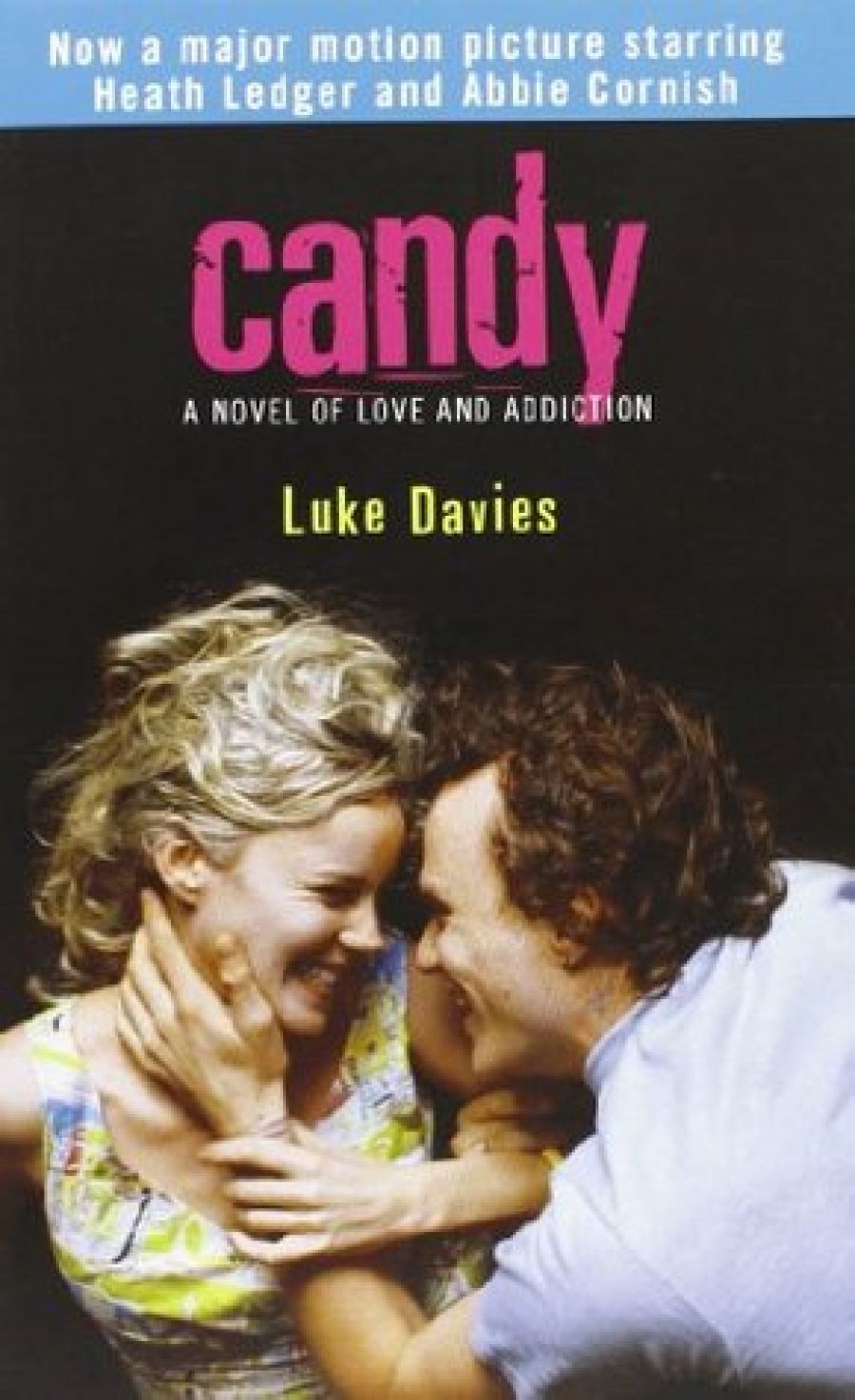
- Free Article: No
- Contents Category: Fiction
- Review Article: Yes
- Article Title: Addictive Genre
- Online Only: No
- Custom Highlight Text:
Not another novel about heroin, you might ask. You might as well say, not another novel about addiction to anything, including love or death. Luke Davies’ novel risks being seen to jump on the bandwagon of relevance, or grunge, or whatever turns you off. But this a good book, a true book, which left me feeling sad for some days, not a bad thing in these times of numbing busyness in which many of us seem to be trapped.
- Book 1 Title: Candy
- Book 1 Biblio: Allen & Unwin $16.95 pb, 286 pp
- Book 1 Readings Link: booktopia.kh4ffx.net/2r0zDM
The protagonists in this novel are also trapped, by heroin, of course. The story begins and ends in Sydney, although most of its action, especially the decline into heavy addiction, takes place in Melbourne. The male narrator meets Candy one Sydney summer. He’s already using and, in the first throes of love, she is drawn into his world of heroin:
I’ve just met Candy, it’s been a month or two. We’re discovering each other’s bodies. Candy’s just discovered smack and I’ve just discovered she’s got a bit of money. Keen as all fuck to get dirty.
Well, there you have it, in a sense. The deceptiveness of being in love and of needing dope. The publisher’s blurb calls this a love story that is also a novel about addiction but there’s no ‘also’ about it. Heroin is the love story. Even early on in the relationship, after another useless attempt by him and dandy to dry out, the narrator says:
What is it about love? Coming down off heroin, it was so hard to think of anything but pain. When we were stoned we loved each other, we touched each other, we laughed a lot, it was us against the world.
The novel traces the descent of their lives into prostitution and petty crime, heavy addiction, and the whole scene of using, which means using people as well as drugs. It may sound
predictable and depressing but it’s not at all. Davies is a very good writer. He is, of course, probably better known as a poet. His second book, Absolute Event Horizon, was shortlisted for the 1995 Turnbull Phillips Fox Prize. It was one of the more striking books of that year and I noted in a review there seemed to be a story about addiction woven into it, as in these lines from a poem called ‘Wilderness’ which mirror the plot of Candy:
Too narrow for mythology, the feeble, fervent search for
bucks –
unthinking, bleached Adonis steals.
She, Muse, Morgana, Moon, leg-cramped, sweating, fucks stupid men while veins
collapse and deals
go down...
I’ve never met Luke Davies, so I’m only guessing, but I get the strong feeling the book is heavily autobiographical. Its details seems true and, in fact, describe for anyone who’s had no connection with the drug-using community as much, if not more, than they’d want to know about scoring, injecting, freebasing, overdosing, the problems with detachable heads of syringes and the like. Those with weak stomachs may find themselves skimming a page or two, not because Davies goes over the top but because his prose is exact and his narrator matter-of-fact about his highest priority in life. When Davies becomes ‘poetic’ about heroin – ‘My arm an estuary of light in which all rivers gather’ – it is always in a context of the futility of the life – ‘We are trapped inside the thickest of boundaries.’
I have one problem and one question. My problem is the character, Candy. The use of a first person male narrator who is fixated on heroin distances the reader from the woman. Although she never becomes a cipher for bimbo loser she occasionally veers a little too close so, by the end, I’m not sure I felt as much as I should about her. This was a woman who turned to prostitution, rather than her acting career, for many years to support not one but two habits, her own and that of the feckless narrator, who does little except arrange the scores and run a few scams: Sure, Davies is relying heavily on irony in his characterisation of the man but too much irony may be as numbing as a narcotic.
My one question goes back to my first comment. Why another prose work about heroin? Davies is a fine poet. Why not a great verse novel? It’s a form which takes well to a first person narrative and Davies’ chapters, certainly the shorter ones, could happily have been poems or suites of poems.
OK, it’s only a question. The author has made his choice about form and has produced a sad, funny, harrowing, and tender narrative about a love affair with drugs. And my one bow to relevance? The John Howards of the world ought to read it (but they won’t).


Comments powered by CComment